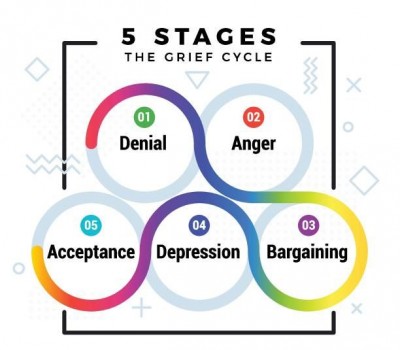Five Stages of Resignation
Resignation, similar to grief, can often unfold in stages as individuals come to terms with a difficult reality or circumstance. Here are five stages of resignation:
1. Denial
Initially, there may be a sense of denial regarding the need to resign. Individuals might downplay or ignore the signs indicating that a change is necessary, clinging to the hope that the situation will improve without having to make such a drastic decision.
2. Anger
As the reality of the need to resign becomes undeniable, feelings of anger may surface. Individuals might feel resentful towards the circumstances or individuals that led to the need for resignation, expressing frustration and disappointment about the situation.
3. Bargaining
In this stage, individuals may attempt to negotiate or bargain with themselves or others in an effort to avoid or delay the resignation. They may seek alternative solutions or compromises, hoping to find a way to resolve the issues without having to leave their current position.
4. Depression
As the inevitability of resignation sets in, individuals may experience feelings of sadness, loss, and despair. They may mourn the loss of their current role, identity, and routine, as well as the uncertainty of what lies ahead. This stage can be characterized by withdrawal, lethargy, and a sense of hopelessness.
5. Acceptance
Ultimately, resignation culminates in acceptance, where individuals come to terms with the need to move on and embrace the changes that lie ahead. This stage involves acknowledging the reality of the situation, letting go of attachments to the past, and embracing the opportunities for growth and renewal that resignation can bring.
You can select candidates that suit the company's needs and directly approach the candidate to proceed to the interview process.
- Category:
- Arts & Culture
- Writer:
- Nwodi Daniel
- Phone:
- +2348038129790
- 17 Mar, 2024
- 436 views
- No comments






